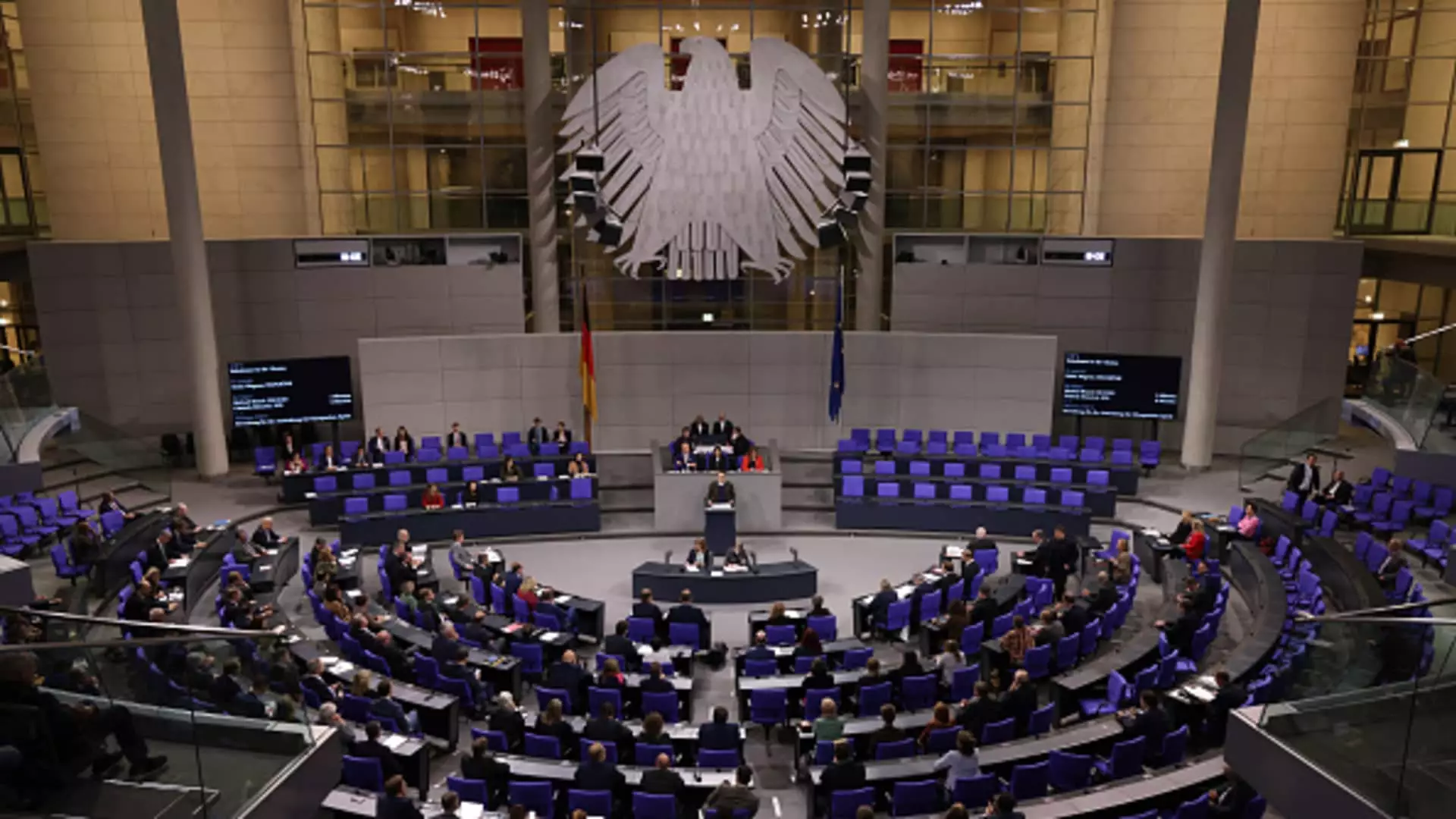On a pivotal Friday, President Frank-Walter Steinmeier took the significant step of dissolving Germany’s Bundestag, the lower house of parliament. This decision, necessitated by the recent collapse of Chancellor Olaf Scholz’s precarious three-party coalition, sets the stage for snap elections scheduled for February 23. In an atmosphere fraught with political uncertainty, Steinmeier emphasized the need for a stable government that can act decisively during challenging times. His remarks highlighted the essential nature of a functioning parliamentary majority and the pressing need to restore effective governance in Germany.
Steinmeier characterized the upcoming elections as a crucial opportunity for Germany to recalibrate its political landscape. He articulated the importance of shifting the focus of political discourse back to tangible problem-solving rather than mere rhetoric. This call to action underscores a broader desire within Germany for a return to substantive governance that addresses the issues facing the nation, rather than getting mired in political maneuvering.
Fairness in Political Campaigning
In his address, Steinmeier also raised alarming concerns regarding the integrity of the electoral process, citing the threat of external influences that undermine democracy. He pointed to recent events in other European elections, particularly in Romania, where covert tactics aimed at swaying public opinion were evidently at play. This assertion resonates in today’s digital age, where social media platforms like X have become battlegrounds for the dissemination of misinformation and targeted interference.
Steinmeier’s insistence on fair and transparent election practices signals a longing for a return to democratic norms that bolster public trust. As political tensions mount, the integrity of the upcoming election becomes paramount, with calls for vigilance to safeguard against manipulation that could distort the electorate’s will.
Chancellor Olaf Scholz, leader of the Social Democrats (SPD), now finds himself at the helm of a caretaker government, tasked with overseeing affairs until a new administration can be established. This transition follows a critical loss of confidence in his government, triggered by the exit of Finance Minister Christian Lindner and the Free Democrats, which left the coalition without a legislative majority. This political upheaval ignited an active campaign trail, personified by the emergence of conservative leader Friedrich Merz, who is positioned as a frontrunner to assume Scholz’s role.
Current polling suggests a daunting environment for the SPD, as they face significant challenges from the conservative faction, which boasts a lead of more than 10 points. The rise of the far-right Alternative for Germany (AfD) adds another layer of complexity, underscoring the fragmented nature of the parliamentary landscape. With traditional major parties shunning collaboration with the AfD, the likelihood of forming stable coalitions becomes increasingly tenuous.
As the nation heads towards the February elections, key questions loom about the future direction of German politics. With public sentiment shifting and challenges compounding, the call for stability and integrity in governance has never been more urgent. The forthcoming elections will not only determine who will lead Germany but will also serve as a litmus test for the resilience of its democracy in the face of evolving political dynamics and external pressures. The road ahead is fraught with uncertainty, but it also presents an opportunity for renewal and reinvigoration within the German political sphere.

